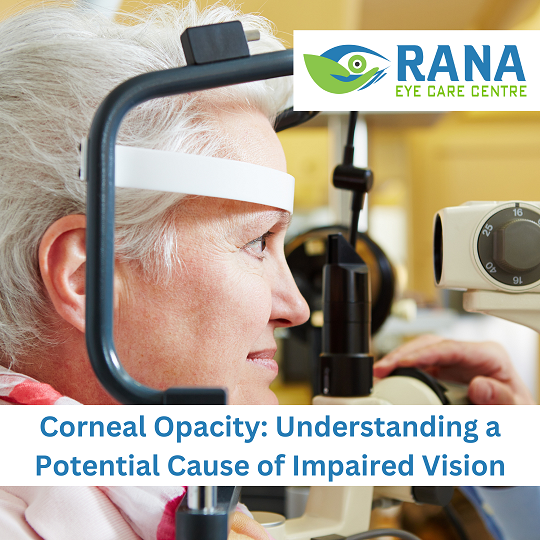Corneal Opacity: Understanding a Potential Cause of Impaired Vision
Corneal opacity, the clouding of the cornea due to disease, can lead to impaired vision. Depending on its severity, the cornea may appear partially or entirely white, obscuring the normal black colour. This transparent structure allows light to enter the eye, enabling vision. However, any opacity or scarring can result in reduced visual acuity.
Causes of Cloudy Corneas:
Inflammation or Infection of the Cornea: Corneal infections caused by bacteria, fungi, or viruses can lead to scarring and corneal opacity. These infections, although treatable, can still cause vision loss.
Corneal Dystrophy or Degeneration: Dystrophies and degenerations affecting the cornea can result in opacity. These conditions usually progress bilaterally and may involve the deposition of abnormal material within the corneal layers, impairing vision.
Signs and Symptoms of Corneal Dystrophies:
- Watery eyes
- Glare sensitivity
- Light sensitivity
- Vision distortion
- Eye discomfort
- Corneal erosion
Treatment for Corneal Dystrophies: Early-stage corneal dystrophies can often be effectively managed. However, when these dystrophies significantly impair a patient’s vision, corneal transplantation is the preferred treatment option.
Keratoconus: Keratoconus is a condition in which the cornea progressively thins and becomes conical in shape. It causes vision loss, distortion, photophobia, and refractive errors. Scarring of the cornea in keratoconus can permanently reduce vision.
Treatment of Keratoconus: Regular assessment of keratoconus progression, such as through a Pentacam HR test, is crucial. Collagen cross-linking is recommended if the reports indicate progress. In advanced cases with corneal scarring, a corneal transplant may be necessary.
Fuchs Corneal Dystrophy: Fuchs Corneal Dystrophy primarily affects the endothelium, leading to corneal clouding and vision deterioration.
Stem Cell Deficiency: Corneal scarring or opacity and vision loss can occur due to a deficiency in stem cells. Chemical damage to the eyes can contribute to this condition.
Corneal Transplants: Corneal transplants are performed by specialized surgeons in HOTA-permitted hospitals. The need for a corneal transplant depends on the severity, location, duration, and presence of other contributing eye problems. While some cases may not impair vision significantly, central corneal opacity that cannot be corrected with glasses or contacts often necessitates a transplant.
If you have any questions or need more information about corneal opacity and its treatment, please feel free to contact Rana Eye Hospital.
Please note that it’s always advisable to consult with a medical professional for accurate information and personalized guidance regarding corneal opacity and its management.






No Comments